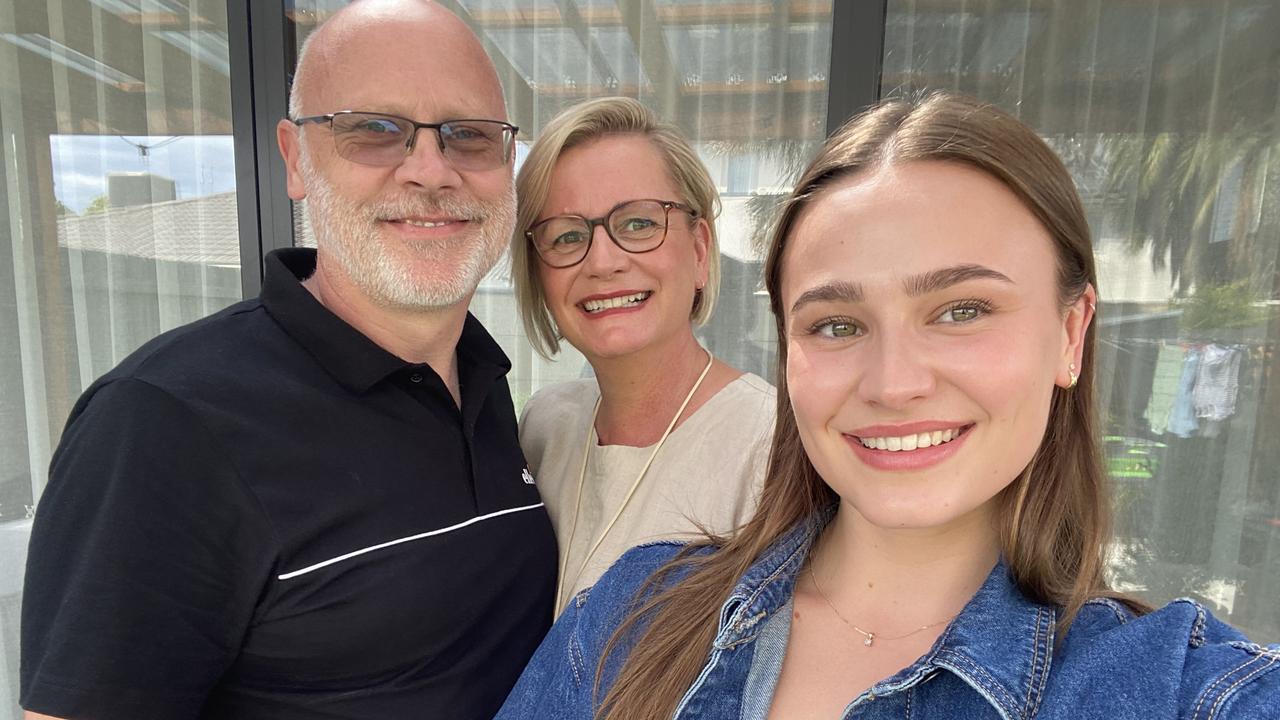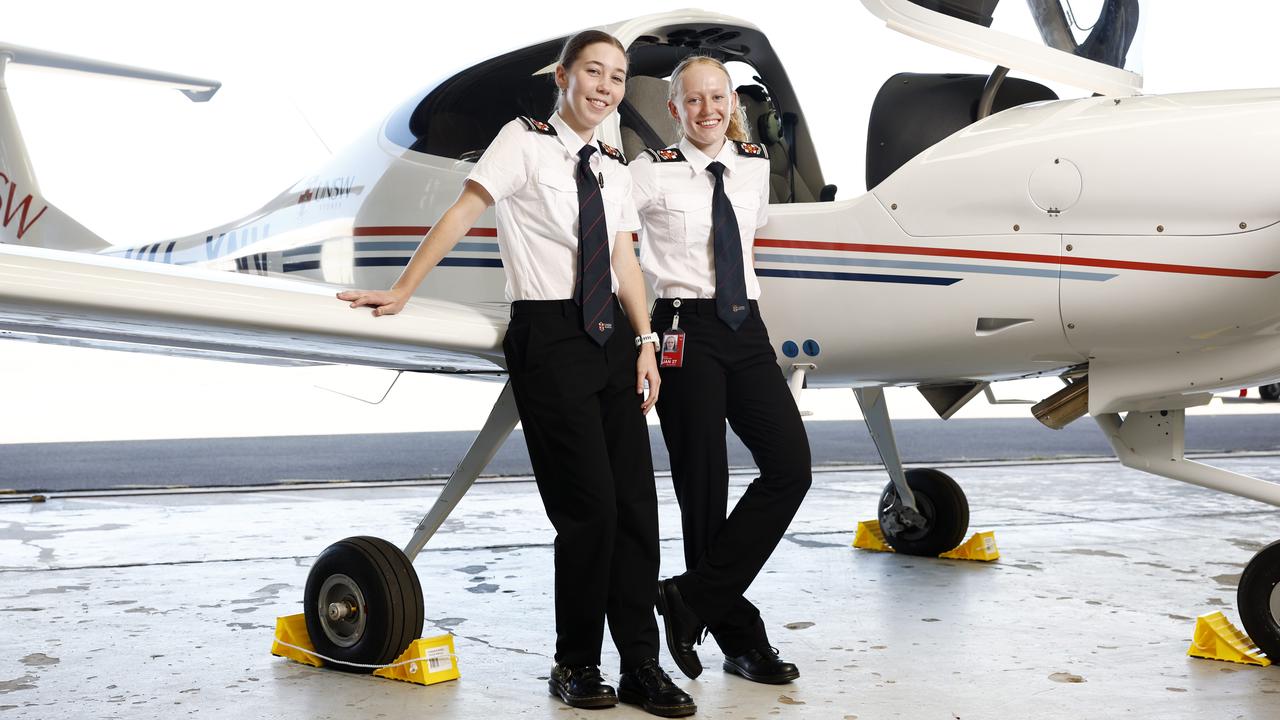Prime Minister’s Spelling Bee winners urge other children to test their skills
They may be pint-sized, but chances are these youngsters can spell complicated words better and faster than you. Prime Minister’s Spelling Bee winners share their secrets to success.
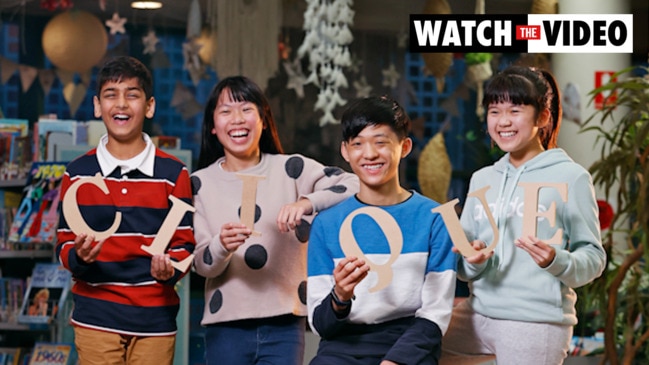
Education
Don't miss out on the headlines from Education. Followed categories will be added to My News.
Meet the country’s best spellers.
Some are topping their advanced high school classes at the age of 10. Others practise every night, reciting, memorising, testing – and they all devour any book in sight.
And at a time when NAPLAN results show thousands of students across the state failing to read, write or do basic maths at a minimum standard, their skills are something to be celebrated.
Spelling has never been more important — so what better time to honour the country’s top spellers than on the eve of the Prime Minister’s Spelling Bee?
Last year, more than 20,000 students from 450 schools magnified their indomitable skills to take part in an ambitious inaugural year of the free competition.
The writing may be on the wall for literacy across the country, but these youngsters are bucking the trend, one word at a time.

READING HER WAY TO SUCCESS
Spelling has always been Theekshitha Karthik’s strong suit. Reading is her favourite thing to do, so literacy comes with the territory — even when she’s tested on tongue-twisters like astigmatism, vindictive or dromedary.
So good is the 12-year-old that she correctly spelled 29 out of 30 words in just one minute and 12.7 seconds to take out the Year 5-6 age group of last year’s competition.
“School is one of my favourite places to be, with heaps of fantastic opportunities and competitions like the Spelling Bee,” the Haileybury Girls College Year 7 pupil tells Sydney Weekend.
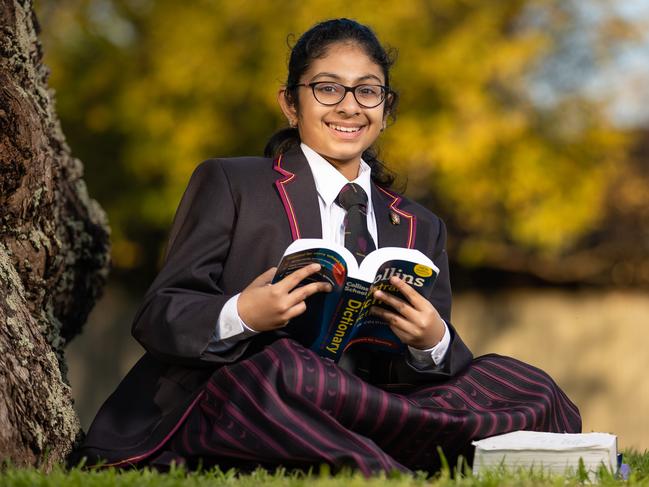
“Yes, there are lots of assessments and exams all the time, but I still love the excitement involved in them all.
“Some words were particularly tricky, but I persevered and spelled most of them correctly.
“It was extremely fun and exciting to do, and a little nerve-racking too.”
The Lynbrook, Melbourne, youngster says prepping for the competition helped her to expand her vocabulary to use in her writing — another passion of hers.
“Reading is, of course, my most favourite hobby — I find it a brilliant way to entertain myself while learning at the same time, and it is a very good way to divert my mind from pressures or worries and let myself get immersed in the contextual surroundings of the book,” she says.
“I have loved most books that I have stumbled upon, however my favourite books would most likely be We Are Wolves by Katrina Nannestad, which was a prize book from the Bee, and I also adore all Shakespeare fiction — I have a big book of Shakespeare stories with beautiful illustrations.
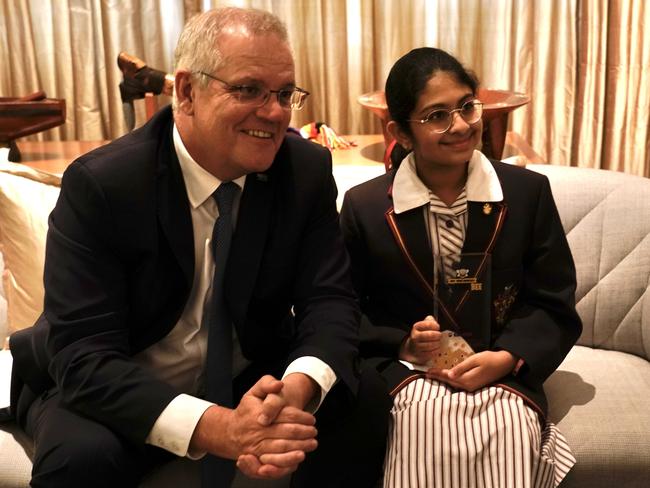
“The hardest words that I had to spell in my life would be schistosomiasis, butyraldehyde or staphylococci – but my top tip to any student would be to find a way to practise words in a way you like.
“Preparing is essential and key, but you have to make sure that you do it in a way that you will remember, otherwise there is no point going to such efforts. So I found reading and writing as a good way to take words from literature pieces and input them to my own works.
“You could also make a crossword if you enjoy puzzles, or create flashcards with words on one side if you feel comfortable preparing with someone else testing you.
“Apart from that, just try your hardest. It’s a huge achievement for you even to just be raising your hand to participate, so you should be incredibly proud for entering first.
“If you go beyond that, that’s excellent — but just remember: don’t stress, and do your best.”
SPELLING WORDS ARE EVERYWHERE
People can practise their skills every day, even by reading the label of a bottle of hand soap, where Arielle Wong learned to spell something most adults wouldn’t ever dare attempt — ethylenediaminetetraacetic — which is a type of acid, the 11-year-old tells Sydney Weekend.
“I entered the competition because it sounded fun and I like spelling tests,” laughs Arielle, who took the title in the Year 3-4 category in 1 minute 21.5 seconds.
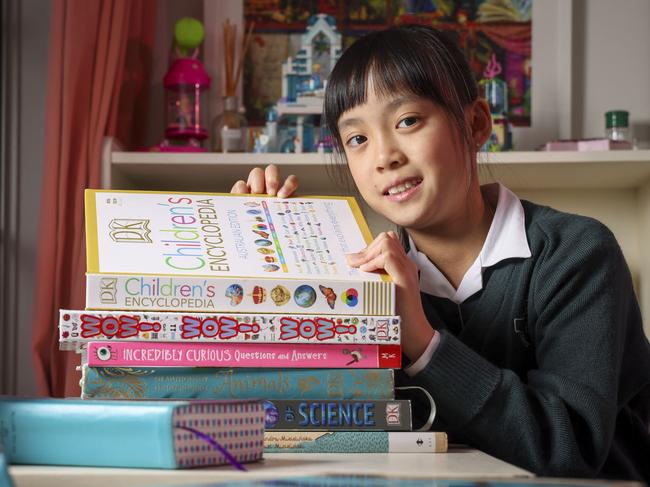
“I practised each night with my dad, and I did the test digitally at school.
“The program reads out the word, puts it in a sentence, then reads it again, then you get to type the answer.
“Some of my words were chortle, gratitude, dismount, and tine, and I got 27 out of 30.
“The practice words were tricky, but it was definitely something fun to do and I was excited to give it a try.”
The Year 5 pupil at Donvale Christian College says practice makes perfect, and reading different genres of books can be a good way to prepare.
“I love reading, and some of my favourite books are Warrior Cats by Erin Hunter, the Harry Potter series by J.K. Rowling, and The BFG by Roald Dahl,” she says.
THRILL OF THE WIN
Sydney 13-year-old Evan Luc-Tran has his own spelling strategy — and that’s simply memorising words.
He practised every night and was tested by his mum, but study is never a chore for someone as competitive as Evan.
“It was hard work to learn as many words as I could before the Bee,” the Year 9 student at Sydney’s The McDonald College says.
“Everyone has a different strategy, but because I have a good memory, my mum downloaded a lot of old spelling bees from the internet and I memorised them and she tested me every night leading up to the competition.
“But I’m competitive so I didn’t mind all the work, and I always love entering competitions for the thrill of the game.”
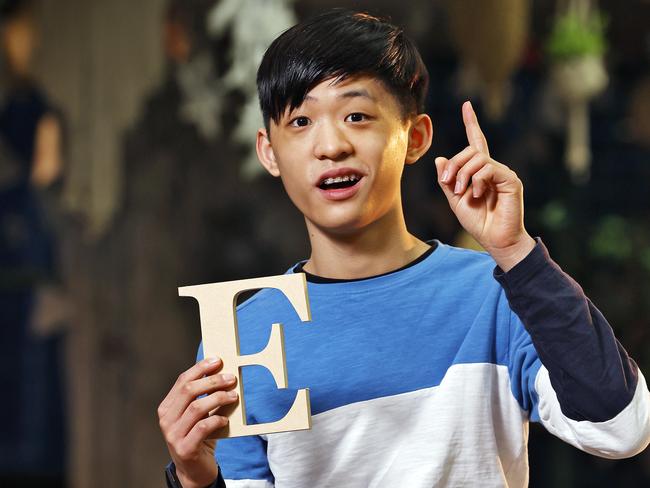
As a six-year-old, Evan won another spelling competition, which gave him the confidence to try again.
The words this time were much harder — like inaugurate, subterfuge or quintessential — so he was thrilled to get 27 out of 30 correct in 3 minutes 6.2 seconds in the Year 7-8 category.
The hardest word he’s ever spelled is vichyssoise — a thick potato and leek soup — perhaps something he picked up on his travels, because at 13, Evan has already visited 22 different countries.
While spelling comes naturally, performing is his passion.
“I love school and The McDonald College is a performing arts school and a great place for young aspiring actors like me,” he says.
“I learn acting every day for two hours in between the academic classes, and even if I don’t become an actor acting is a great skill to have.
“I’m quite busy, but when I have the chance to read I prefer nonfiction stuff like biographies, history, geography type of books.”
LIGHT YEARS AHEAD
Last year, Queensland 10-year-old Deona Emmanuel was a Year 4 pupil who got 30/30 in her state final and came sixth in her national final.
So advanced is Deona that this year she is in Year 7, skipping two years of school and doing advanced subjects at high school level.
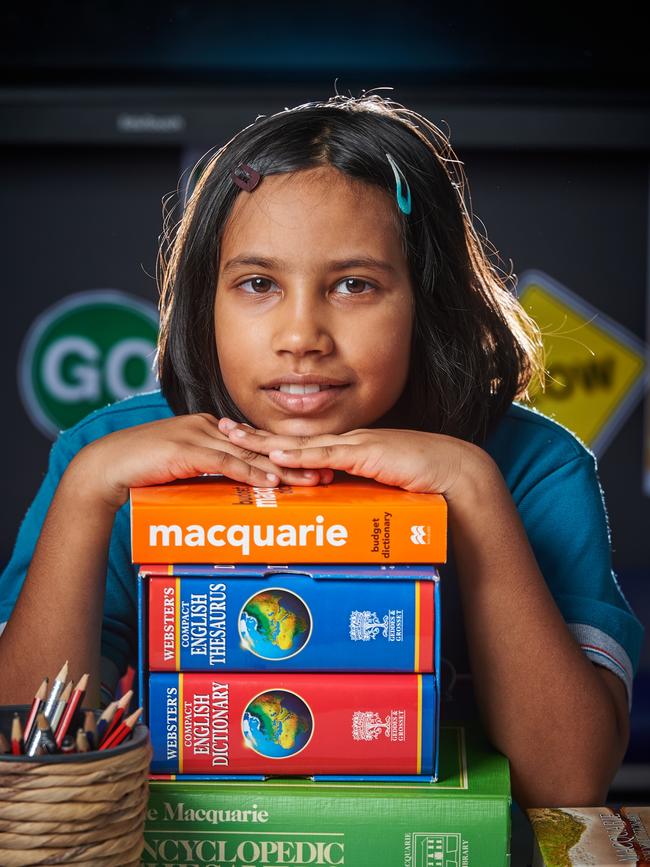
“I love reading, and ever since I read my first chapter book, I have an urge to read every book I see,” she says.
“I have always loved spelling and thought it would be a good first opportunity to compete in a nationwide competition when I was a student at Holy Spirit Catholic School, Cranbrook.
“I got 26 out of 30 in my first round, and nearly gave up hope of making it into the next round. I was shocked when I learned I got into the state finals.
“Some hard words did not make sense to me at first though, like rote.
“In the second round, I managed to get 30 out of 30, then in the nationals, I got stressed about speed and misspelled a few easy words, so I came sixth place.
“There weren’t many hard words in the state or national finals, but I found the first one hard. I was super-anxious every time.
“I was glad I competed, because I got a chance to discover new words, and realise where I stood when spelling against others my age.”
Now at St Margaret Mary’s College in Townsville, Deona can’t wait to have another go this year although, ever humble, she says her chances will be lower in the older age group.
“I would say that all kids should compete, regardless of how good they are, because it is a great way to discover new vocabulary and learn,” she says.
SOUNDING IT OUT
NSW’s Patricia Wu got full marks for everything except for nationals, in which the 12-year-old got one wrong — and the word that tripped her up was cyclamen.
“I remember spelling it ‘siclamen’, I was somewhat close,” she says.
“I’ve always enjoyed spelling tests so it was quite fun. I’m really proud and surprised, and I never thought I would come this far.
“Some words were a little harder than others, but if I was a bit iffy about one word, I just used that method that they taught us in kindergarten of ‘sounding it out’ and gave it my best.”
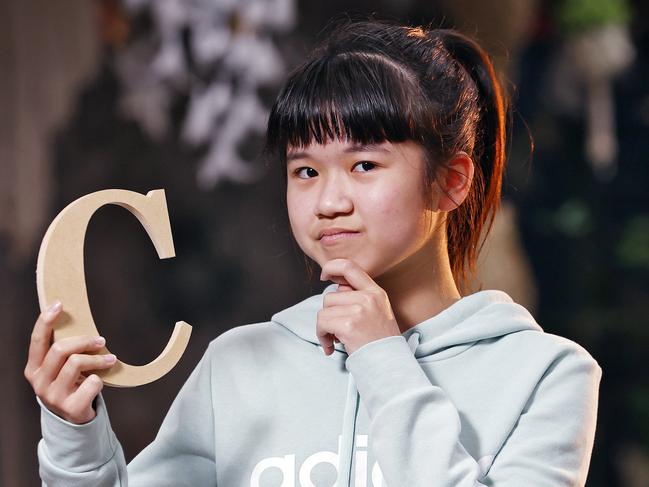
Ironically, one of the hardest words for the Carlingford, Sydney, resident to spell is “misspell” — the James Ruse Agricultural High School Year 7 student can never remember that there’s both a double l, and a double s.
“A few other words that are pretty hard are those ridiculously long ones like ‘pneumonoultramicroscopicsilicovolcanoconiosis’ and ‘supercalifragilisticexpialidocious’,” she laughs.
“I would really tell other kids to get involved.
“Even though some kids set really really high expectations for themselves, in the end it doesn’t really matter about winning.
“Don’t feel drawn back about potentially mistyping one word.
“If you expect yourself to win the moment you start the school round, chances are you will probably disappoint yourself.
“I honestly didn’t expect myself to come this far. Give it a shot, and if you don’t do so well, it’s fine.
“As my Year 5 teacher said: ‘It’s not a grave stone moment.’ It won’t go on your grave stone if you fail.”
RESULTS WORTH THE EFFORT
Jewel Polson is no stranger to spelling tests. Her school, Lighthouse Christian College in Cranbourne, Victoria, teaches spelling explicitly, with weekly tests and annual spelling bees.
It was that rigorous training that not only motivated the 14-year-old, but gave her the confidence to prepare for the competition, she says.
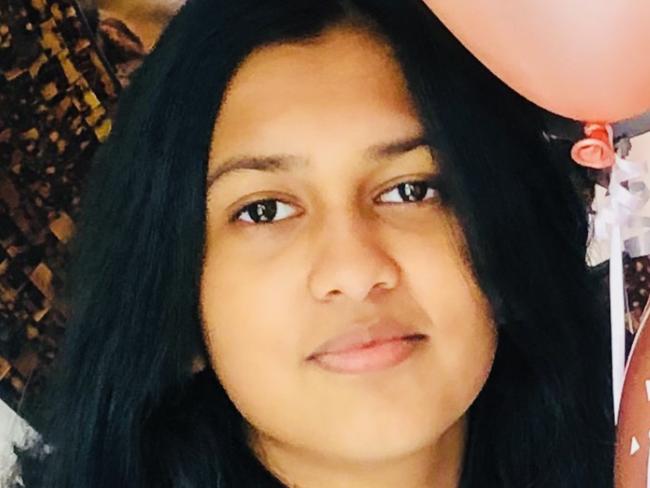
“I entered the competition last year for the first time and I was so happy that I got the opportunity to compete in the finals and I am grateful to have achieved the sixth place in the 7/8 category,” she says.
“Some of the words I remember from the finals were chiropractor, monolithic and pharynx — and hearing the word through the headphones and typing it simultaneously was not an easy task.
“Nevertheless, I embraced the challenge and did my best.
“I did get nervous and stumbled on a few words with which I was familiar, but I just picked myself up and kept going.
“To the students who are taking part this year, I encourage them to enjoy the journey and stay committed — the feeling of accomplishment is surely worth every bit of the effort.”
BOOKS, BOOKS, EVERYWHERE
Aditya Paul got full marks in his state final and came third in his national final with 26/30 — and if you ask him, that could be because of the 300-plus books that fill his Sydney home.
“I do love to read and I’m absolutely surrounded by books, all over the house — and yet whenever somebody asks me what my favourites are, I’m absolutely stumped,” he says.
“I guess I really just cannot choose — but I still would say that one of my all-time favourites is Wonder by R.J. Palacio.
“Have you ever heard of Liechtenstein? It’s a principality on the upper bit of the Rhine, and that word tripped me up quite badly the first few times I tried to spell it. But now I’ve got the hang of it — I guess that just proves practice makes perfect.”
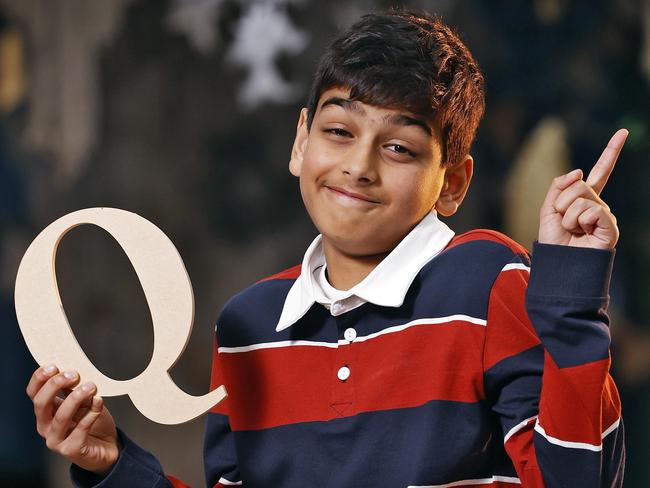
After the fun he had last year, nothing could stop Aditya from entering the Spelling Bee again this year — and to fellow booklovers considering entering, he says there’s nothing to lose.
“Don’t be afraid of spelling, especially big words — the best advice I can give you is to be brave and have fun,” he says.
“Since all of the words were a complete surprise, it was quite hard at first. But as the test went on, I got calmer and the words became a lot easier to spell.
“Can I let you in on a secret? I’m not very good at typing, so last year I blundered a few words at the start. I knew the words perfectly well, but my pudgy fingers undid me.
“It was the most horrible feeling, but I think I managed to recover pretty well.
“I’m no stranger to spelling, but the uniqueness of this particular competition was amazing! It was the first spelling bee I knew of where you were judged by speed as well as time.
“And who wouldn’t be happy with my result?”
AN EVERYDAY SKILL
“Fisticuffs” was a word Sydney’s Grace Lin had no idea about — but after coming fifth nationally, it will now forever be etched in her memory.
“For me, spelling is a skill that I use everyday, so much so that it comes naturally now,” she says.
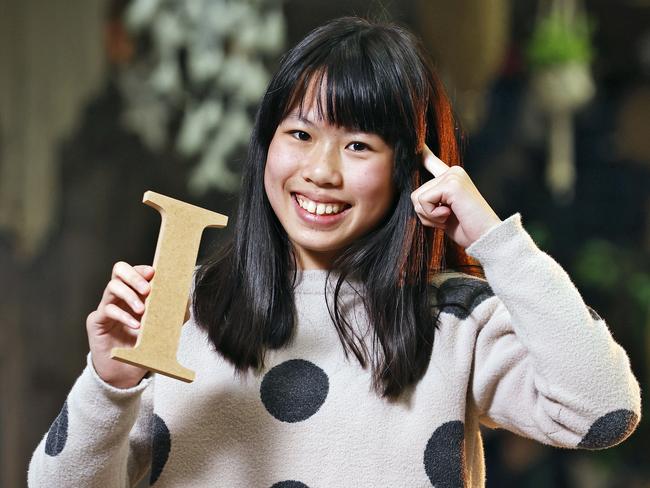
“I remember that from an early age, I would study and learn unfamiliar words, and if I didn’t understand them I would ask for the spelling.
“It was a bit challenging, and very nerve-racking, but as nervous as I was about the result, I still found it both fun and exciting.
“I loved being challenged by the clock and learning never-before-heard words.”
The keen reader says books teleport her to a new landscape.
“(They) mesmerise me through colourful descriptions and a beautiful story,” Grace says.
“Not only that, but it teaches me new ways to write, and new words to spell.
“The hardest word I’ve spelled would definitely have to be ecclesiastical.”
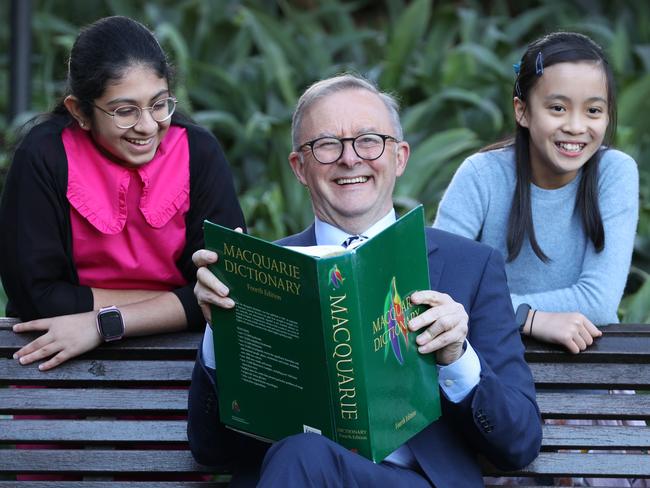
HOW IT WORKS
The Prime Minister’s Spelling Bee is open to students in Years 3-8 at all Australian schools and registered home schools.
It has three competition levels: Green for Years 3-4; Orange for Years 5-6; and Red for Years 7-8.
Students will be given 30 random words from their competition level word list. They have 25 seconds to spell each word.
The competition will be held in three rounds, with the School Round from August 15-26, the State/Territory Finals on September 1-2 and the National Final on September 8.
The winners will be announced on September 14, and each of those age group national champions will win a trip to Canberra to meet the Prime Minister, an iPad and a HarperCollins book pack.
Each national winner’s school will also get a $1000 voucher to spend on books, technology or other equipment.
Registrations are open until 5pm (AEST) August 19. See kidsnews.com.au/spelling-bee


